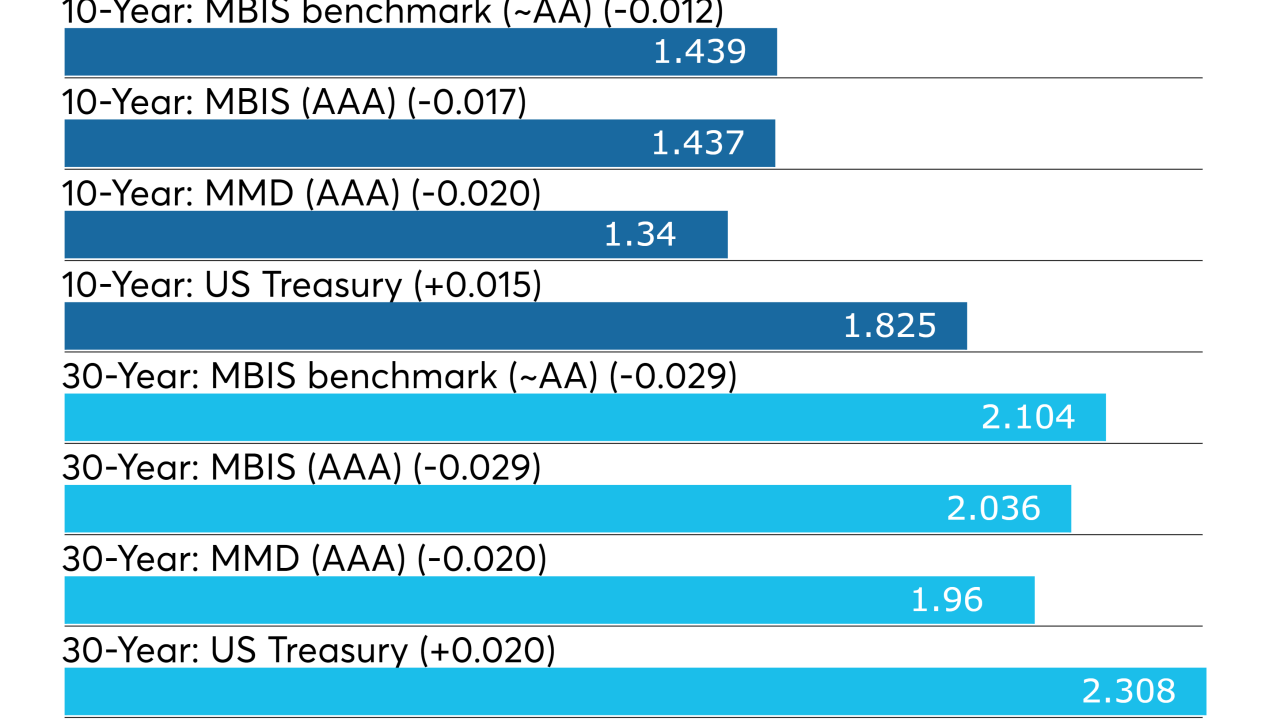-
Financial damage from the COVID-19 pandemic forced New Jersey Gov. Phil Murphy to retreat from plans to build up the state’s reserves.
May 5 -
S&P Global Ratings follows Moody's Investors Service in revising state’s credit outlook downward on revenue losses from COVID-19 pandemic.
April 30 -
The state's tough budget position was underscored by an agreement with noteholders to extend a $750 million maturity while paying them higher interest.
April 24 -
Financial strains from COVID-19 were the primary factor in downgrading the state to A-minus from A. The outlook was revised to negative from stable.
April 21 -
Phil Murphy is developing an emergency borrowing plan to combat revenue loss amid the coronavirus pandemic.
April 20 -
The rating agency affirmed its A3 rating of the state's general obligation bonds; the outlook revision affects $35.9 billion of debt.
April 13 -
The Garden State is extending its 2020 fiscal year calendar by three months in an effort to fully gauge economic fallout from the ongoing COVID-19 pandemic.
April 3 -
Gov. Phil Murphy’s administration places nearly $1 billion of discretionary spending in reserve through the 2021 fiscal year amid economic struggles from virus.
March 25 -
The New Jersey state teachers' union and state Senate President Steve Sweeney announced an agreement to lower school district and employee healthcare costs.
March 13 -
After years of contentious state budget battles over NJ Transit, state Senate President Steve Sweeney is proposing a permanent funding solution.
February 28 -
The Democrat unveiled a $40.9 billion FY 2021 spending plan that again pushes for higher taxes on incomes above $1 million.
February 25 -
The region's bond issuers sold $113.3 billion of debt in 2019, a 16.8% increase from 2018 fueled largely by a spike in taxable deals.
February 21 -
A coalition of left-leaning lobbying groups are pushing new tax proposals that could raise $3.1 billion of new annual revenue ahead of Gov. Phil Murphy unveiling his annual fiscal plan.
February 20 -
A key New Jersey link to the long-stalled Gateway Tunnel project under the Hudson River into Manhattan cleared a major barrier for federal funding Monday and now awaits clearance from the White House.
February 11 -
Gov. Phil Murphy’s administration had held funds in reserve since July citing concerns about revenue projections.
January 17 -
The New Jersey governor is continuing his push for a tax on incomes above a million dollars after lawmakers rebuffed him during his first two years in office.
January 15 -
Four large competitive deals stole the show on Tuesday, including New Jersey's first general obligation sale in a little more than three years.
January 7 -
The municipal bond market started off the week adopting a cautious tone, eyeing issuance and world events.
January 6 -
Analysts expect Tuesday's $325 million competitive pricing will garner strong demand from investors seeking higher yields.
January 3 -
The muni market finished out the last day of 2019 on a quiet note, with no deals priced and yields ending little changed.
December 31



















